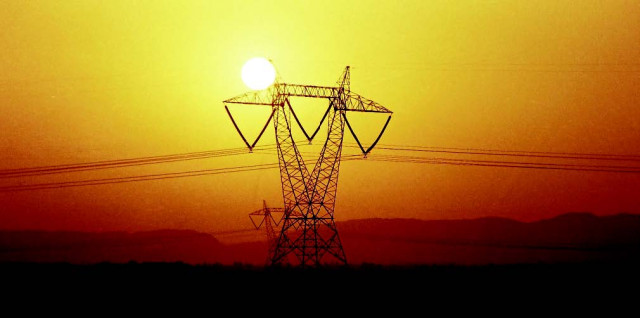Solving our energy problem
The prime minister has been elected with a clear mandate to solve the crisis.

The initial reports about the Nawaz Administration’s energy plan had been promising. PHOTO: ARIF SOOMRO/EXPRESS/FILE

The initial reports about the Nawaz Administration’s energy plan had been promising. The free market-supporting PML-N seemed interested in reducing the government’s ability to take populist measures that caused the energy crisis in the first place by reducing the role of government in the energy sector to that of a regulator, not that of a producer and service-provider. That would have been a welcome step in the right direction. But now, judging by what was said on the first day of the energy conference in Lahore on June 6, it appears that the initial focus of the PML-N-led government will be to reduce power outages through adhoc measures first and only then institute measures that would lead to a permanent resolution of the problem.
It is a strategy that may well work, but we have reason to be sceptical. Raising tariffs on industrial consumers while leaving residential consumers untouched, borrowing heavily from banks to pay off circular debt, allocating power from one part of the country to another: all of these are measures that have been tried before by the former Pakistan Peoples Party-led administration. We all remember how badly that turned out. The wholesale rejection of the PPP’s strategy by the voters should be a case study for the PML-N on how good intentions are no longer enough: the voters demand results.
The fact is that the adhoc measures never produce enough of a reduction in load-shedding to gain popular support fast enough, and by the time the government realises how futile its efforts have been, it is already too late and the honeymoon period is over, making it difficult to then initiate the kind of unpopular but necessary reforms needed in the first place.
The government will find, for instance, that raising tariffs for industrial consumers is not enough, since the real spike in demand occurs when domestic consumers turn their air conditioners on to beat the oppressive summer heat. Data from the National Electric Power Regulatory Authority (Nepra) show that peak electricity demand in the summer takes place between 10pm and 11pm in July, when all the offices and factories are closed.
We applaud the PML-N’s effort to try to fulfil its campaign promise as quickly as possible, but the party needs to realise that governments need to be agile enough to talk and chew gum at the same time. The short-term measures and the long-term reforms need to be initiated simultaneously, a task that would be made easier if the prime minister were to go ahead with his initial pledge to integrate the petroleum ministry and the water and power ministry to create a unified energy plan.
The decision to cut power supply to Karachi and divert some of the electricity to Punjab may indeed have some merit, but we do hope that the new administration realises that adding 700 megawatts to the electricity supply in Punjab will have only a marginal effect on power outages in the largest province. It also has the added disadvantage of reneging on one of the government’s contracts with a private sector entity, and one that has been remarkably successful in reducing theft and curbing power outages in its service area. If the government plans on attracting investment in the power sector, reneging on a government promise as one of its first moves is unlikely to be viewed as an encouraging sign by investors, who are already sceptical of the government’s ability to keep its promises.
We are grateful that the prime minister has decided to so publicly bring the energy crisis to the centre of the national political conversation. We would urge him to use this opportunity, this rare moment, to push through the toughest reforms.
Published in The Express Tribune, June 8th, 2013.
Like Opinion & Editorial on Facebook, follow @ETOpEd on Twitter to receive all updates on all our daily pieces.















COMMENTS
Comments are moderated and generally will be posted if they are on-topic and not abusive.
For more information, please see our Comments FAQ